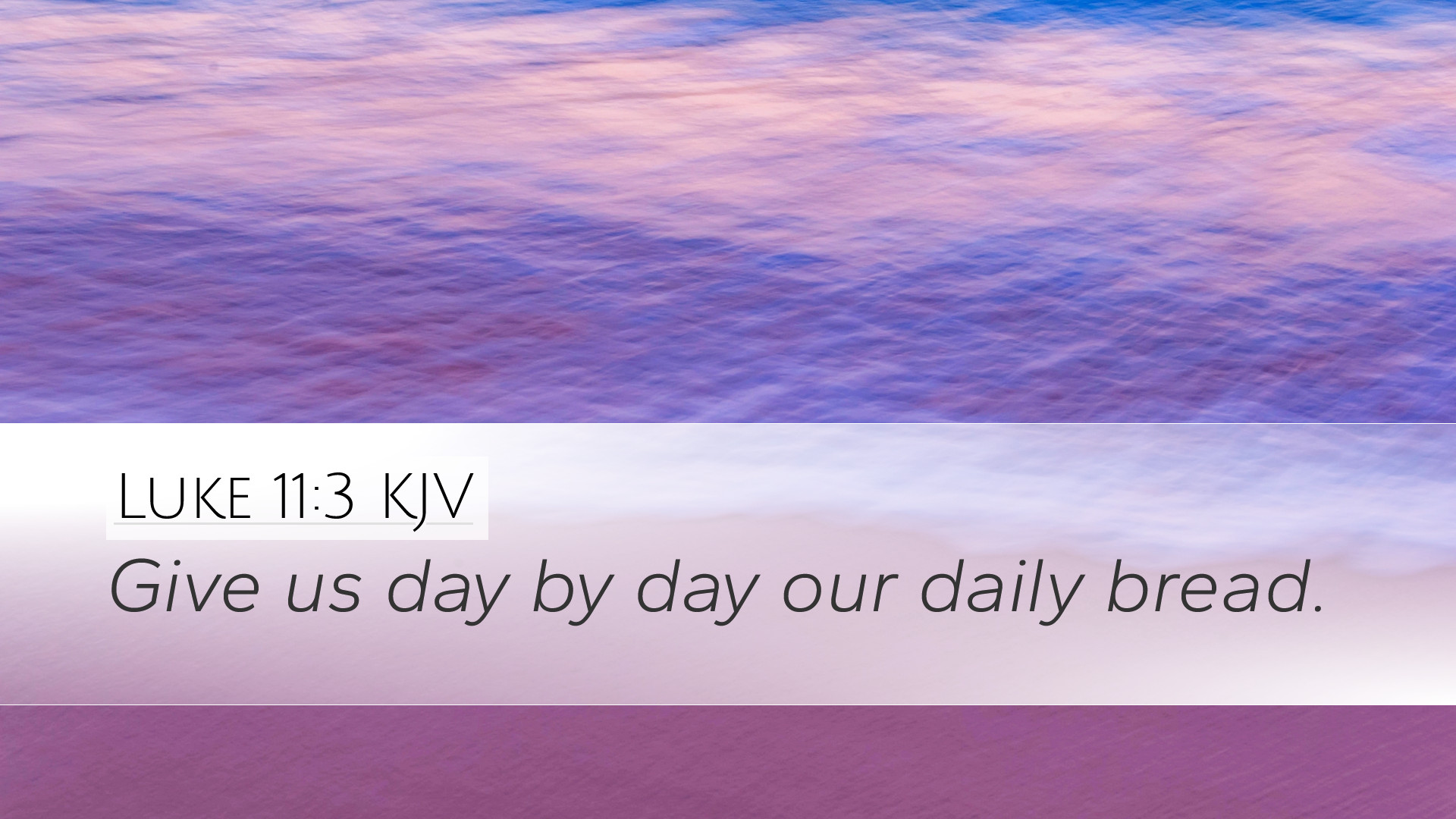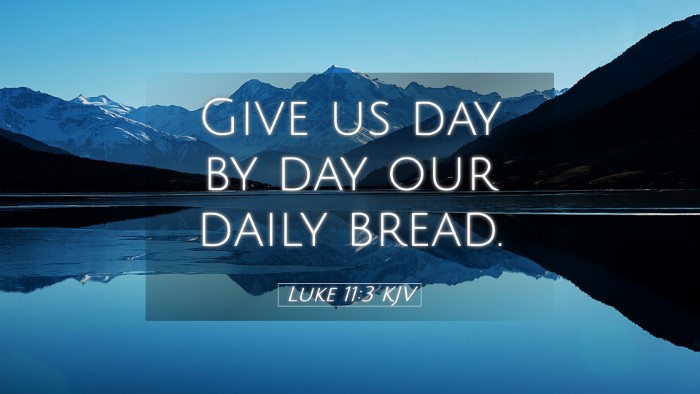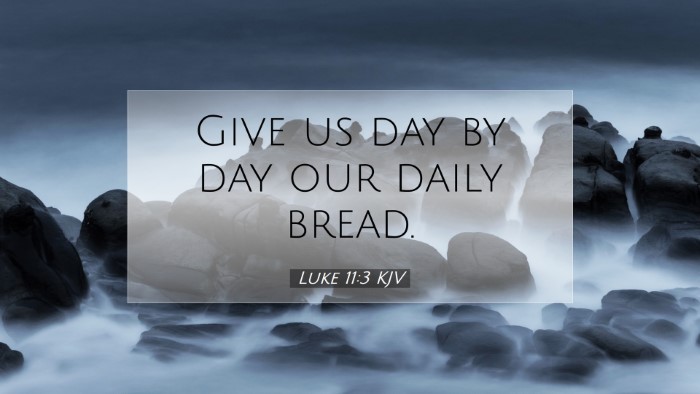Commentary on Luke 11:3
Verse: "Give us day by day our daily bread."
Importance of Daily Provision
In this petition, Jesus teaches His followers to rely on God for their necessary sustenance. The phrase “day by day” emphasizes the need for daily reliance on God's provision. Matthew Henry draws attention to the manner in which this request implies a humble acknowledgment of human dependence on divine grace. Bread, being a fundamental element of sustenance, represents all necessities of life, both physical and spiritual.
Theological Reflection
Albert Barnes comments on how this simple request encapsulates a profound trust in God's continual provision. He highlights that while believers strive for more substantial needs, Jesus instructs them to seek the essentials for each day. The essence of this prayer signifies breaking down reliance on the future, focusing instead on present needs, which fosters faith in God's ongoing mercy and care.
Spiritual Bread vs. Physical Bread
Adam Clarke expands on the notion of 'bread' by linking it not just to physical sustenance but also to spiritual nourishment. In John 6:35, Christ refers to Himself as the “bread of life,” demonstrating that the believer’s deepest need surpasses mere physical satisfaction. Clarke articulates that this prayer invites practitioners to not only ask for their daily necessities but also for a deeper hunger for spiritual sustenance through Christ.
Conditionality and Community
This petition reflects the communal aspect of prayer. The use of the plural “us” signifies that one does not pray in isolation but in community. Matthew Henry articulates that this highlights the need for community in our requests; as we ask for our daily bread, we are also reminded to be aware of the needs of others. This reflects a profound ecclesiastical perspective whereby individual needs are interwoven with communal obligations, reinforcing the body of Christ.
Contextual Relevance
Understanding the cultural context during Jesus' time accentuates the gravity of this request. It was a time when many faced precarious living conditions, with instability rampant in daily life. Albert Barnes explains that asking for daily bread was not merely a spiritual metaphor but a pressing reality for many. Thus, the significance of this prayer is not only relevant in personal devotional life but also reflects the socio-economic struggles of the early church.
Application for Today
The contemporary application of this verse invites believers to consider their dependencies in a modern context. Are we relying on God for our daily needs, or are we distracting ourselves with worries about the future? Every day provides an opportunity to approach God with our needs. Henry suggests integrating gratitude into our requests, fostering a heart of thankfulness which engenders a deep understanding of our reliance on God's faithfulness.
The Role of Faith
Addressing the tension between faith and doubt, Clarke underlines that this prayer embodies a request made in faith, trusting that God not only hears but responds lovingly to our needs. When one asks for daily bread, it is an act of faith with the expectation of receiving God's provision. This encourages believers to live in a state of expectancy and trust, reinforcing a daily rhythm of dependence on God.
Conclusion
Luke 11:3 presents a powerful exhortation within the framework of prayer and reliance on God’s provision. By inviting believers into a daily relationship with the Divine, this verse helps refine the understanding of what it means to be sustained both physically and spiritually. Reflecting on insights from Matthew Henry, Albert Barnes, and Adam Clarke, it becomes clear that the prayer is an invitation to cultivate a lifestyle of dependency, gratitude, and trust in God's unfailing provision.


